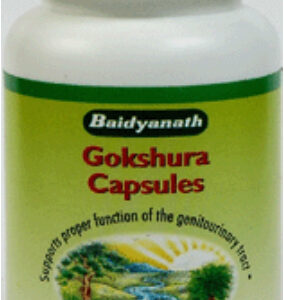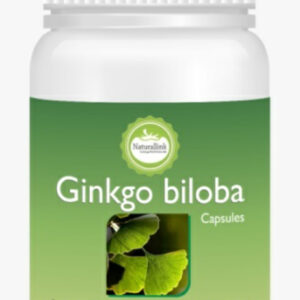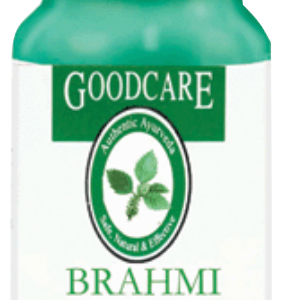COMPOSITION AND THEIR BENEFITS –
Emblica officinalis: Amla undeniably a powerhouse of nutrients. It is a very delicious fruit. Amla is also known as Indian Gooseberry.
Terminalia chebula:The excellent hypoglycaemic property of haritaki plays a significant role in alleviating the blood sugar levels of the body. The production of insulin from the β-pancreatic cells becomes active in taking this wonder fruit.
Terminalia belerica: Baheda helps to increase immunity and promote longevity due to its Rasayana (rejuvenating) property. It helps to fight against infections in the body and prevent recurrent seasonal infections
Curcuma longa:The curcumin in turmeric has proven, strong anti-inflammatory properties that block the action of inflammatory molecules in the body.
Berberisaristata:The plant is used traditionally in Indian system of medicine as an antibacterial, antiperiodic, antidiarrheal and anticancer and it is also used in the treatment of ophthalmic infections.
Solanum xanthocarpum: The herb is helpful in treating respiratory disorders like bronchial asthma, cough and bronchitis.
Solanum indicum: Solanum indicum is an antioxidant, anticancer, anti-inflammatory, diuretic, immunomodulatory, and has neuroprotective effects and is diaphoretic, expectorant and stimulant also.
Curcuma zedoaria: Curcuma zedoaria) is a perennial herb and its dried rhizomes are used for their medicinal properties.Helps to manage pain and swelling of the wound because of its Ropan property.
Zingiber officinalis: It has been widely used for arthritis, cramps, sprains, sore throats, rheumatism, muscular aches, pains, vomiting, constipation, indigestion, hypertension, dementia, fever and infectious diseases.
Piper nigrum: High in antioxidants. Free radicals are unstable molecules that can damage your cells.
Piper longum: It is most commonly used to treat chronic bronchitis, asthma, constipation, gonorrhea, paralysis of the tongue, diarrhea, cholera, chronic malaria, viral hepatitis, respiratory infections, stomachache, bronchitis, diseases of the spleen, cough, and tumors.
Tinosporacordifolia: Tinosporacordifolia is used for diabetes, high cholesterol, allergic rhinitis (hay fever), upset stomach, gout, lymphoma and other cancers, rheumatoid arthritis (RA), hepatitis, peptic ulcer disease (PUD), fever, gonorrhea, syphilis, and to boost the immune system.
Alhagipseudalhagi:It is used as a medicinal herb for its gastroprotective, diaphoretic, diuretic, expectorant, laxative, antidiarrhoeal and antiseptic properties, and in the treatment of rheumatism and hemorrhoids.
Cyperusrotundus: Cyperusrotundus improves lactation, relieves fever, burning sensation, excessive thirst. Commonly known as nut grass.
Andropogonmuricatus: AndropogonMuricatus is used for Cardiovascular disorders, Gastrointestinal disorders and other conditions.
Azadirachtaindica: Azadirachtaindica leaf is used for leprosy, eye disorders, bloody nose, intestinal worms, stomach upset, loss of appetite, skin ulcers, diseases of the heart and blood vessels (cardiovascular disease), fever, diabetes, gum disease (gingivitis), and liver problems.
Inularacemosa:Inularacemosa is an aromatic tonic, febrifuge, and expectorant with anti-inflammatory, carminative, diuretic, and antiseptic properties.
Glycyrrhizaglabra: Glycyrrhizaglabra root may have potent antioxidant, anti-inflammatory, and antimicrobial effects.
Holarrhenaantidysenterica: Holarrhenaantidysenterica is useful in digestive disorders like dysentery. Dysentery is known as Pravahika in Ayurveda and is caused by vitiated Kapha and Vatadoshas. In severe dysentery, inflammation of the intestine causes the appearance of mucus and blood in the stool.
Trachspermumammi: It can be used to treat gas and flatulence as it reduces the gas formation in the abdomen and releases the already formed in the intestine.
Clerodendrumindicum: Clerodendrumindicum is oldest herb used in ayurvedic system which is very famous for healthy respiratory system and to give good rhythm to voice.
Moringaoleifera: An important factor that accounts for the medicinal uses of Moringaoleifera is its very wide range of vital antioxidants, antibiotics and nutrients including vitamins and minerals.
Acoruscalamus:Calamus is also used as a calming medicine (sedative), to induce sweating, and to treat rheumatoid arthritis and stroke.
Cinnamomumzeylanicum: Cinnamon extracts have been used medically to treat gastrointestinal problems and to help calm the stomach. Cinnamon is a carminative, an agent that helps break up intestinal gas that has traditionally been used to combat diarrhea and morning sickness.
Prunuscerasoides: Padmaka- Prunuscerasoides, is an Ayurvedic herb used for the treatment of skin diseases, increasing the complexion and used as uterine tonic. It is also known as Wild Himalayan Cherry.
Vetiveriazizanioides: It is used to treat many skin disorders and is known to have a calming effect on the nervous system. Other medicinal uses of Vetiveriazizanioides include ringworm treatment, indigestion and loss of appetite.
Sidacordifolia:Sidacordifolia is used to treat asthma, tuberculosis, the common cold, flu, headaches, nasal congestion, cough and wheezing, urinary tract infections, sore mouth, and fluid retention (edema).
Desmodumgangeticum: The plant has febrifuge, aphrodisiac, analgesic, diuretic, antiinflammatory, and haemorrhagic properties.It is used in postnatal complaints, diarrhoea, chronic fever, biliousness, cough, vomiting, and asthma.
Urarialagopoides: This herb is packed with the antiseptic, anti-inflammatory, antimicrobial, anti-emetic, aphrodisiac, analgesic, cardiovascular, expectorant and analgesic properties. Use of this herb is quite effective in the healing of fractured bones.
Embeliaribes: It is used as antibacterial, antifertility activities, antiprotozoal, abdominal disorders, lung diseases, constipation, indigestion, fungus infections, mouth ulcer, sore throat, pneumonia, heart disease and obesity, analgesic, anti-inflammatory, antioxidant and formulations of Embeliaribes are Ardrakakhandavaleha,
Plumbagozeylanica:Plumbagozeylanica is rich in plumbagin which helps strengthen the immune system and better protect the body from environmental toxins and free radicals. It also supports the expulsion of thick mucus from the body thereby preventing repetitive occurrences of common infections such as cold and cough.
Cedrusdeodara:Devdaru helps to control the symptoms of asthma and gives relief in case of breathlessness. According to Ayurveda, the main doshas involved in asthma are Vata and Kapha.
Piper chaba: It is most commonly used to treat chronic bronchitis, asthma, constipation, gonorrhea, paralysis of the tongue, diarrhea, cholera, chronic malaria, viral hepatitis, respiratory infections, stomachache, bronchitis, diseases of the spleen, cough, and tumors.
Trichosanthesdioica:Trichosanthesdioica is used as tonic, febrifuge, and in subacute cases of enlargement of liver and spleen; in Charaka Samhita, leaves and fruits are used for treating alcoholism and jaundice. Leaves are used in edema and alopecia. It is also used as antipyretic, diuretic, cardiotonic, and laxative.
Pongmiapinate:Pongmiapinate is a medicinal herb mainly used for skin disorders. All parts of Pongmiapinate tree (roots, flowers, leaves, bark) are used for medicinal purposes.
Pongmiapinate is widely used in managing constipation as it helps to improve gut motility and has a laxative property. It might also be used for piles due to its astringent and anti-inflammatory properties.
Syzygiumaromaticum:Antioxidants are compounds that reduce oxidative stress, which can contribute to the development of chronic disease (8Trusted Source).
Cloves also contain a compound called eugenol, which has been shown to act as a natural antioxidant.
Nelumbonucifera:The Lotus root promotes the blood circulation which helps to raise oxygenation of organs and also increase the functions and energy level.
The presence of pyridoxine interacts with the neural receptors in brain which impacts the mental state and mood. It eradicates headaches, irritability and stress level.
Roscoeaalpna:Roscoeaalpina Royle (Zingiberaceae) commonly known as Kakoli is a perennial medicinal plant endemic to the Himalayas. It has been used in vitality strengthening Ayurveda groups i.e., Astavarga and Jeevaniyagana and in preparation of Ayurvedic formulations e.g., Chyavanprasha and DivyaPidantak Tail.
Cinamomum:Antioxidants protect your body from oxidative damage caused by free radicals.Cinnamon is loaded with powerful antioxidants, such as polyphenols
Dosing –
ADULTS
2 capsules twice a day or as directed by the Physician
CHILDREN
1 capsule twice a day or as directed by the Physician.
Warning:If pregnant consult your Physician before taking
Storage –Store in a cool dry place away from direct sunlight,
Do no use if the seal is missing or broken





Reviews
There are no reviews yet.